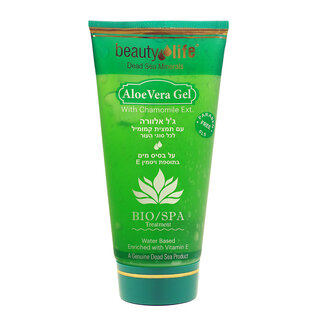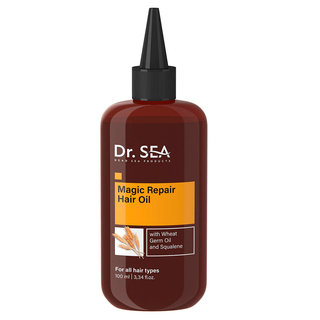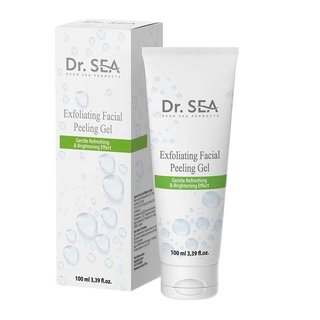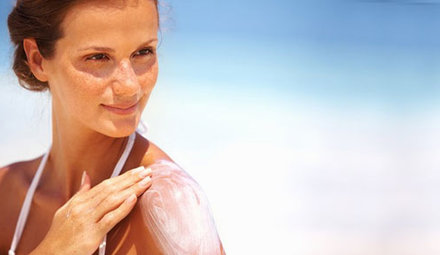
Summer Skin Care
The sun is the source of all life. Sunlight has strong healing properties. People with certain (skin) diseases benefit greatly from sunlight. When you feel the warmth of the sun on your skin, your body immediately starts producing vitamin D. No pill can beat that! However, too much sun can also cause damage. How do you protect yourself against it?
Optimal enjoyment of the sun
The magic word in sensible sunbathing is: make sure you don't burn! Be wise and let your skin get used to the sun slowly. If you want to expose your skin to the sun for a longer period (several hours at a time), it is best to apply sunscreen and wear covering clothes and headgear.
Limit wearing sunglasses
Wear your sunglasses only when the sun really bothers you. This is because sunglasses block important parts of the light spectrum that the body needs for essential biological functions.
Your body produces melanin in sunlight, which helps it protect itself from harmful UV rays. The brighter the sun gets, the more melanin is produced by your body. The more melanin, the darker the skin.
To produce melanin, it is necessary for sunlight to reach the eyes. As a result, the pineal gland recognises the need for its production. When wearing sunglasses excessively, sunlight cannot get into the eyes, reducing melanin production. As it were, your brain misses the signal to activate your natural protection mechanism. A shame, right?
Skin and hair care in summer
Give your skin and hair sufficient attention in summer too. What is important here?
1. Scrub
Regularly exfoliating with a customised product (see our advice per product) is the best way to make your skin glow and achieve and maintain a beautiful even tan. It also allows moisturisers and aftersuns to do their job better.
Face
Treat your skin to a lovely facial peel 2-3 times a week. Don't forget your lips!
Body
Pay extra attention to your feet, elbows and knees while exfoliating. In summer, the soles of your feet often suffer. Walking barefoot and wearing open shoes cause the skin to produce more calluses.
Tips
- Do not go directly into the sun after exfoliating, as the skin will be extra sensitive.
- Never scrub when your skin is burnt; wait until the skin has calmed and healed. The aloe vera gel cools and soothes the skin and is therefore an ideal aftersun, even for toddlers
2. Hair removal
Underarms
In summer, we often sweat excessively due to high temperatures. This can cause itching and unpleasant body odour. It can also lead to skin rashes. When the armpits are hair-free, the chances of the above inconveniences are reduced. Some people find it annoying to shave their armpits. You can also cut the hair short to reduce the chances of the above discomforts or use our hair removal cream.
Use an aluminium-free deodorant regularly and lubricate the skin with aloe vera gel as soon as itching or irritation occurs.
Bikini line
Never shave your bikini line just before going to the beach! The skin here is more sensitive and prone to irritation. If you shave or wax the skin first and then directly expose it to bright sunlight, salt and chlorine, the chances of ingrown hairs, bumps and itching are a lot higher. So be smart and do it the night before you leave and soothe the skin with the aloe vera gel after hair removal.
3. Hydrate
- Always use a moisturiser after showering and/or exfoliating. If you do not moisturise your skin sufficiently, it can dry out and feel tight and itchy. Use a day cream on your face, neck and décolleté every morning to care for and protect your skin.
- Use lighter, water-based creams.
- Also, remember to use a weekly face mask that suits your skin type to keep your skin balanced.
- Use a rich, non-greasy night cream with active ingredients like glycerine or shea butter that help hydrate the skin and retain moisture. Many night creams additionally work to combat wrinkle formation.
Tips
- Cleanse your skin thoroughly every evening with a product that suits your skin type and pat it with toner in the morning.
- Drink plenty of good-quality water. Beautiful skin starts from within; by drinking enough water, you help hydrate your skin. An amount of 2-2.5 litres of water a day is advised by beauticians and health experts.
- Eat healthy. The skin is the body's largest organ and is greatly influenced by what you eat. Therefore, eat varied and fresh. Various types of fresh fruits and vegetables contain many different antioxidants that protect the skin allowing it to glow !
4. Hair Care
Too much sun, salty sea and chlorinated water can make your hair less shiny, feel less soft, break off faster, become frizzy and split. How do you protect your hair from this?
- Wear a cap, turban or a nice straw hat.
- Avoid chemical treatments like perm, highlight setting etc in summer.
- Try to stay in the shade more.
- Wear your long hair in a bun and try to keep your head above water.
- Rinse your hair before swimming or apply a leave-in hair oil or serum (this closes the cuticles) so that chlorinated water and/or seawater is less likely to penetrate your hair. Always rinse sand and seawater well and wash your hair twice with a mild shampoo. Then, always use a conditioning hair mask or conditioner to protect your hair, make it more combable and prevent static.
- Take care of your hair from the inside out by eating fresh and colourful food and drinking plenty of water.







